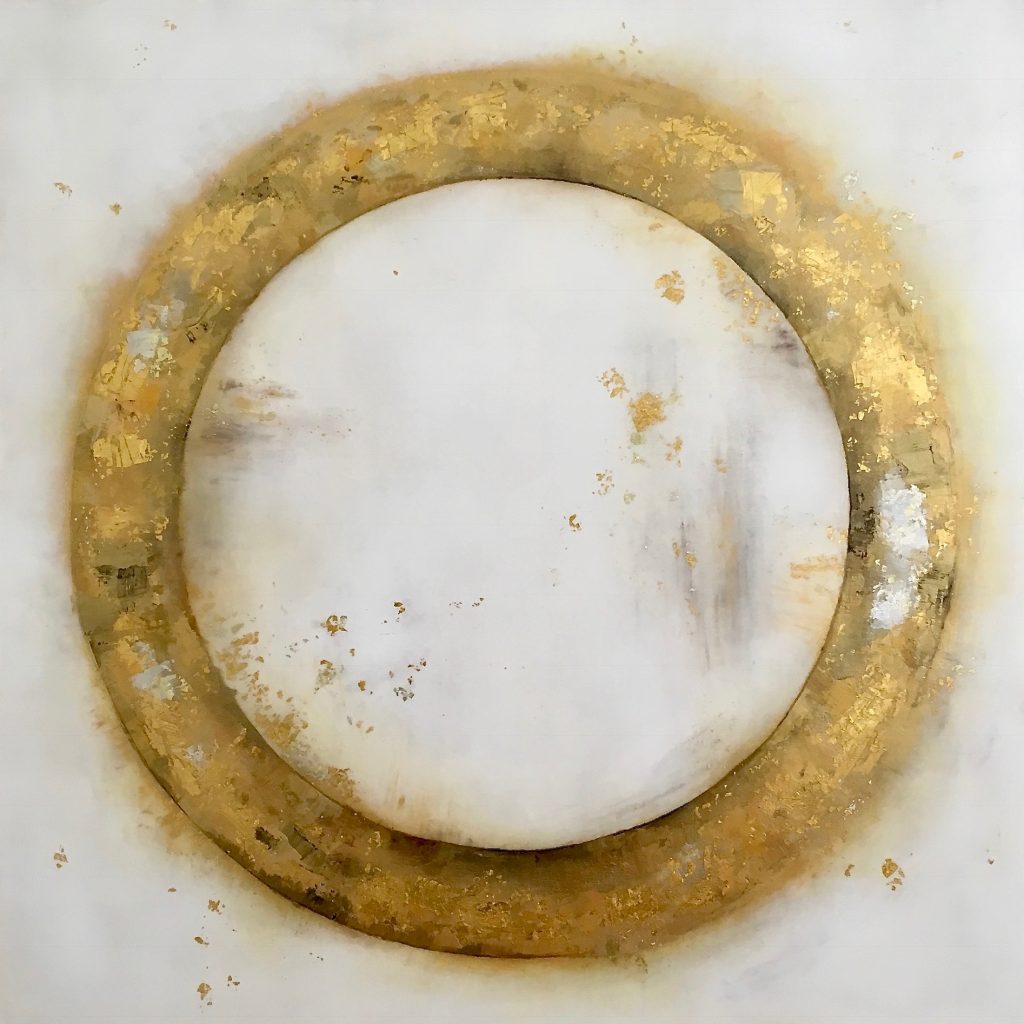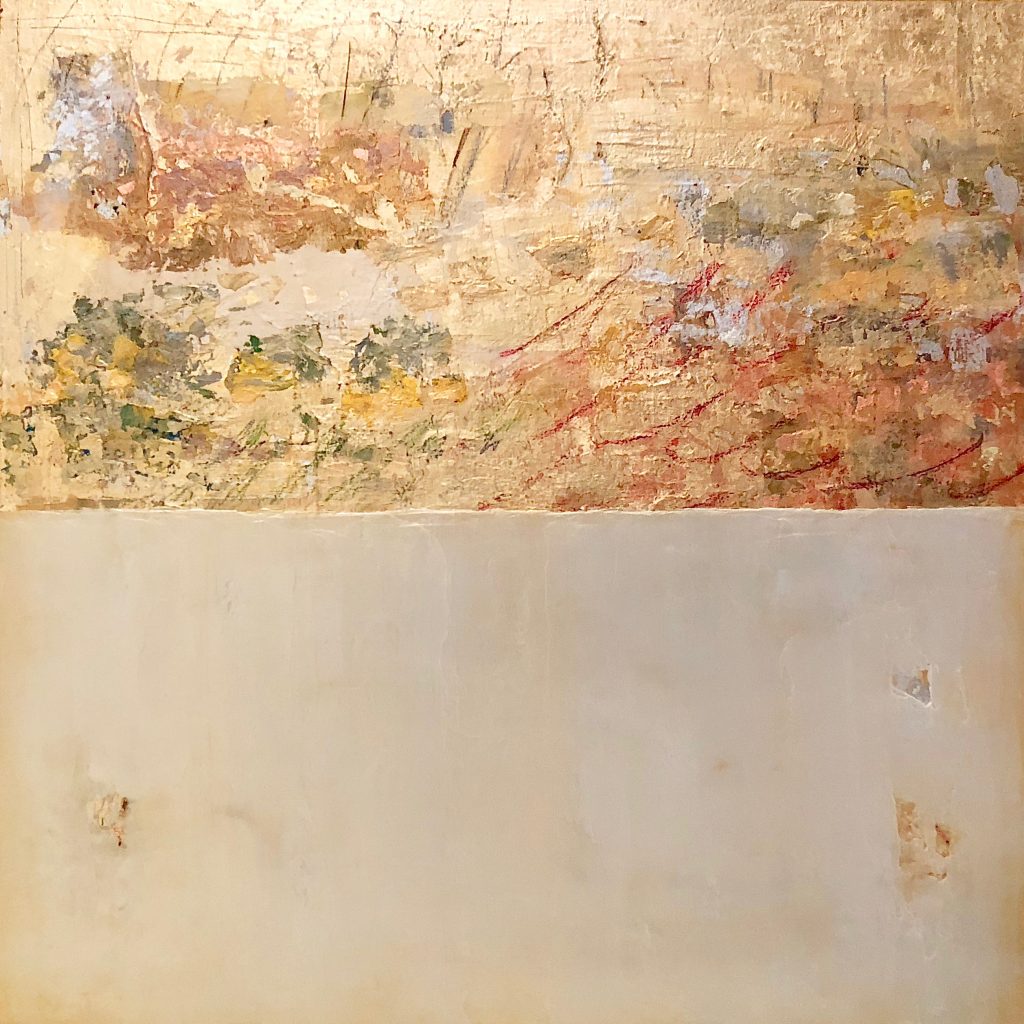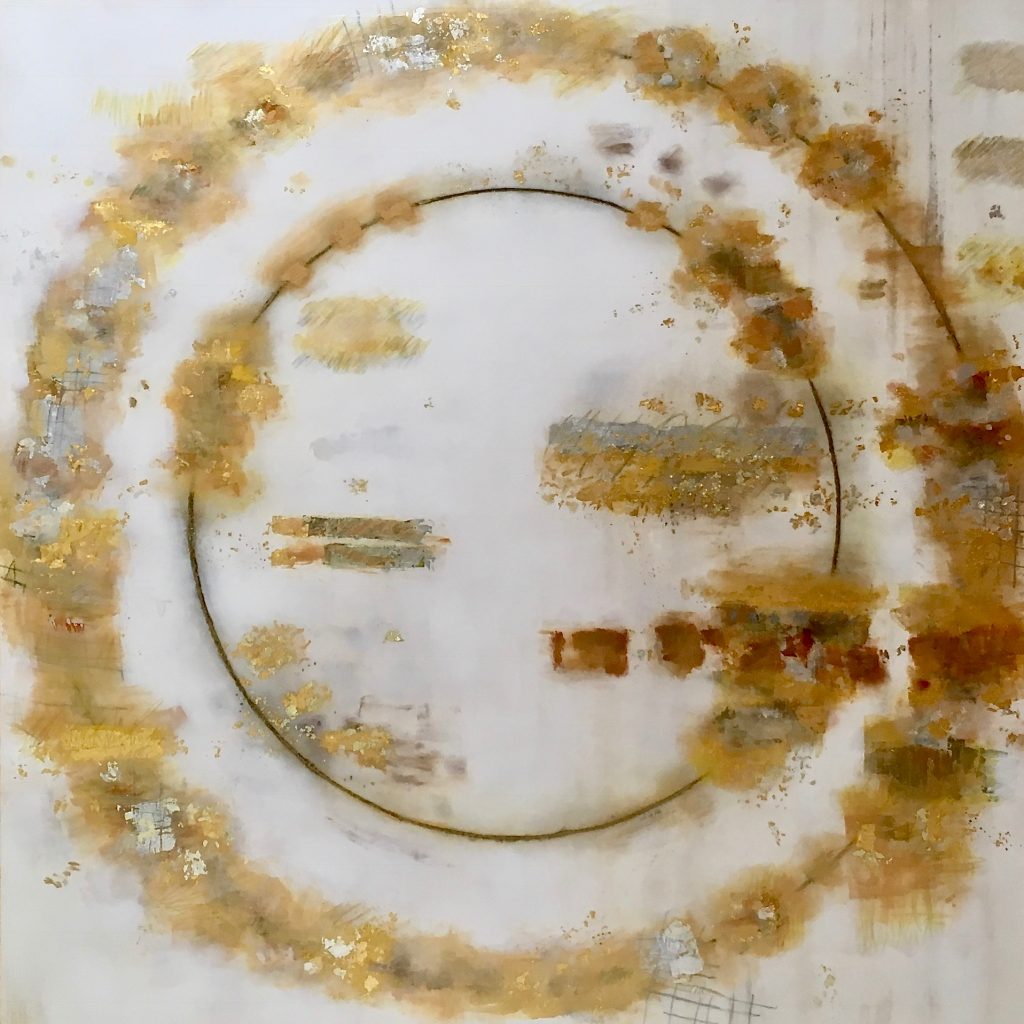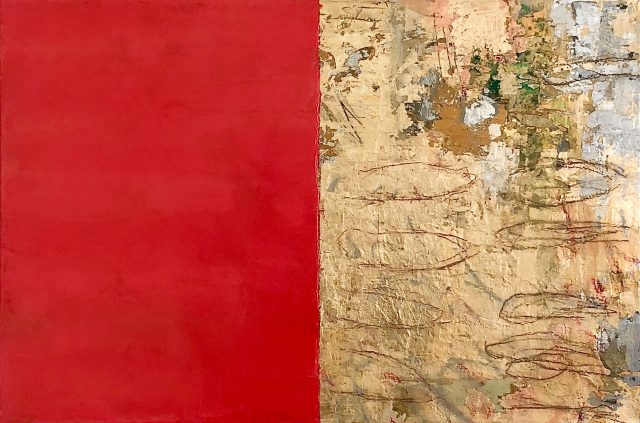With high-quality artworks, welcoming owners and an adorable gallery dog, Fiumano Clase is a joy to visit. Their current show, 円熟 (Enjuku), is Takefumi Hori’s third UK solo exhibition.
The works seem deceptively simple at first glance. Yet, seeing them up close often reveals heavily textured images that offer shimmering gold leaf, thick layered paint and interesting ideas about the place of perfection in art.
‘Enjuku’ – meaning maturity, perfection and ripeness – is an apt title, summarising the harmonious balance and sophisticated depth of meaning in the works.
It could be argued that the confidence, originality and impressive technical ability behind the artworks shows both maturity and ripeness. The perfection that is referenced in the title is perhaps the most subjective description, and also the most thought-provoking.
With confident, straight-edged blocks painted over some paintings, and incredible free-hand circles sitting within others, the works do seem impossibly perfect for a human hand.

However, notions of perfection seem to be subtly challenged in this exhibition.
Some images are strongly divided in half with gold and touches of colour in one section, and solidly painted blocks in the other; they seem to have a perfect split.
Although, within the bold blocks there are occasional gaps through the otherwise solid layer of paint. For example, in Gold & Gold XVII, the gaps reveal the upper half’s intricate pattern beneath, showing that the gold design may be largely hidden, but it is actually spread across the whole canvas.
The gaps through the paint of these blocks, as well as their uneven textures, could easily be interpreted as imperfections. Presenting such works under the title ‘Enjuku’ seems to raise questions of art’s subjectivity, as it is a matter of opinion whether it should be the artist or the viewer (or both) who could decide if an image is perfect.
Equally, the circles may look impossibly perfect for an artist’s hand, but the very slight unevenness of their edges breaks the illusion of exact precision. This only adds to the overall exhibition as the title’s meaning rings quietly behind the works to offer fascinating ideas about the potential for perfection within Hori’s work, as well as within art in general.

‘Enjuku’ is a subjective exhibition, exploring subjective themes; perfection may be unattainable, but the ripe maturity with which it is explored here clearly reflects skill and artistic intuition.
At Fiumano Clase, Bruno the gallery dog quietly potters around the small exhibition space and there is an always-warm welcome from the gallery co-owner Francesca Fiumano; the themes in Hori’s artworks may be complex and debatable, but they are placed within an inclusive and inviting space that allows you to voice the questions they raise.

Enjuku is open at Fiumano Clase until 26th May. You can find out more about the exhibition by visiting the gallery’s website here.









